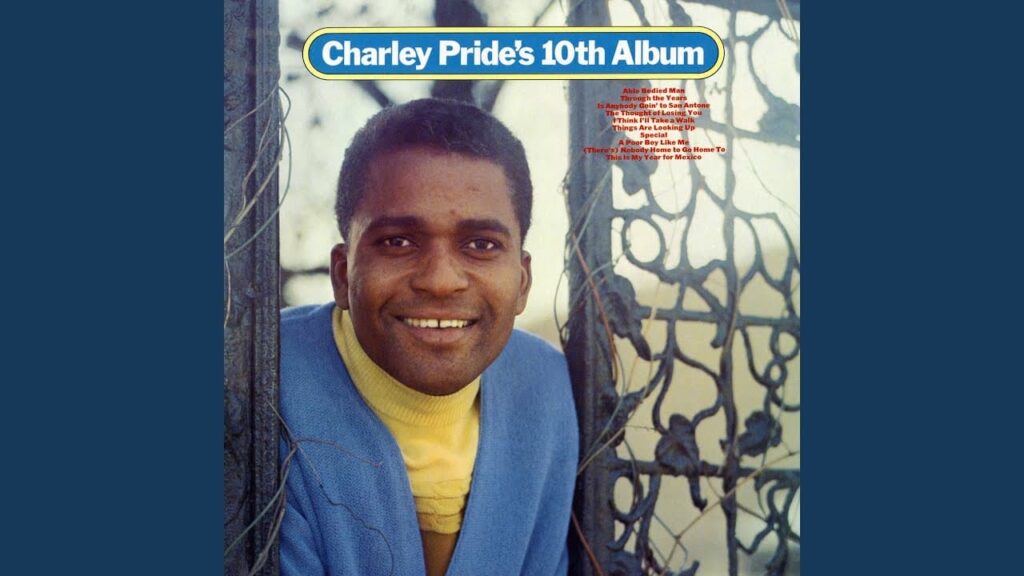
That Lonesome Road to San Antone: Charley Pride’s Perfect Ode to Heartbreak on the Highway
Oh, the memories that song conjures. If you’re like me, you can’t hear the opening fiddle and those smooth, rolling strings without being instantly transported back to the golden age of Country radio, where the voice of Charley Pride reigned supreme. “Is Anybody Goin’ to San Antone,” released in February 1970, wasn’t just another hit; it was a defining moment in the career of a true trailblazer, solidifying his place as a pillar of the Nashville sound.
This beautifully crafted lament, penned by the songwriting team of Glenn Martin and Dave Kirby, went straight to the top, becoming Charley Pride’s third consecutive number one single on the Billboard Hot Country Songs chart. It held that coveted #1 spot for two weeks, spending a respectable 16 weeks on the chart in total. The song was the powerful lead single from his aptly titled album, Charley Pride’s 10th Album, a remarkable testament to his prolific output and rapid ascent in a genre that desperately needed his smooth, soulful baritone.
The story behind “Is Anybody Goin’ to San Antone” is classic country gold. It perfectly captures that deep, desolate feeling of being utterly alone in a big, indifferent world, needing a clean break. The narrator is a heartbroken hitchhiker, stranded on the metaphorical and literal road—Route 66, to be exact—on a cold, stormy day. The opening line, “Rain dripping off the brim of my hat,” is such a vivid, cinematic piece of writing, immediately painting a picture of soaked misery and profound lonesomeness.
What makes this song resonate so deeply, even half a century later, is its raw, relatable meaning: the desperate desire for escape. The man has walked out on a relationship, a “toxic woman” who did him wrong, and he’s pleading with the passing traffic not just for a ride to San Antonio or Phoenix, but for any destination at all, “as long as I can forget I’ve ever known her.” It’s a beautiful, aching paradox—he’s looking for a place to forget his pain, but he carries that pain, and that woman, with him in every note.
Charley Pride’s delivery is what elevates the song from a simple tear-in-your-beer tune to an enduring classic. His voice, warm as a Tennessee summer evening, lent a sophisticated, “Countrypolitan” polish to even the most traditional country themes. The rich orchestration—those sweeping strings and the pedal steel guitar—perfectly complement his effortless, powerful phrasing. He didn’t just sing the words; he inhabited the quiet dignity of a man trying to hold himself together as his world crumbled. It’s the sound of resilience wrapped in regret, and for a generation of country fans, it remains one of the most honest and beautifully sung travel logs of a broken heart ever recorded. It reminds us all of those crossroads in life where you just need to keep moving, hoping the next town can finally wash the memory away.